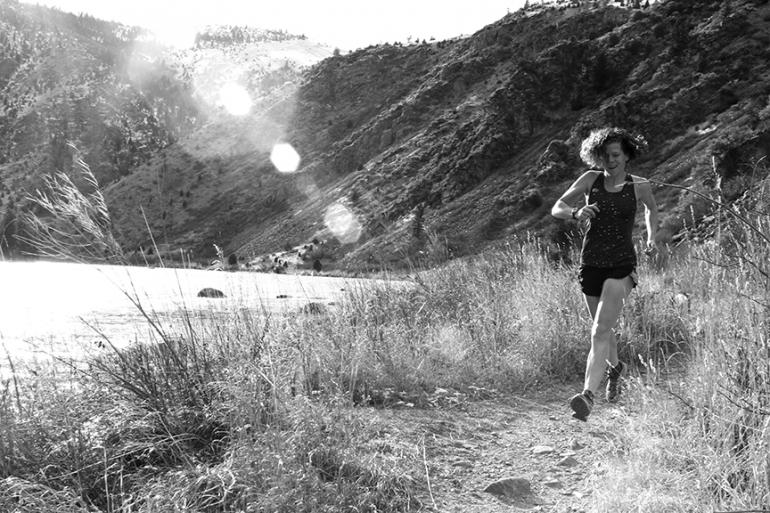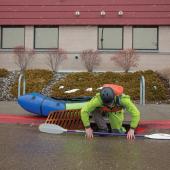Hear Me Roar
On gender equality in sports.
Montana’s endurance sports have a reputation for bringing crowds of talented, friendly athletes together. An accommodating environment encourages everyone to get involved. But even in this supportive atmosphere, good intentions can be hurtful. Several years ago, at a Montana running race which shall remain nameless, men and women gathered together over bowls of homemade chili to swap stories and hear race results. They announced first-place prizes, congratulating everyone for surviving a tough race. But one more prize had to be awarded that afternoon: the “Chicked Award,” given to the first man passed by the fastest woman. The award was meant to be a joke, but to whom? The prize insults the male by implying he’s not “man enough,” and it insults the female by making a mockery of her performance. The world of sports has certainly come a long way, but does a “chicked award” constitute progress? Just because opportunities are available to women doesn’t necessarily mean the perception of female athletes has made equal strides.
From the advent of competitive sports, men have ruled the roost. Until just recently, it was deemed inappropriate, even unsafe, for women to compete in sports. In 1896, the (male) founder of the modern Olympics stated, “No matter how toughened a sportswoman may be, her organism is not cut out to sustain certain shocks.” Athletes and non-athletes bought into that assertion, laying the foundation for deeply ingrained gender inequity in sports for generations to come.
But then in 1967, the world met Katherine Switzer. This novice runner had heard enough stories about men running the Boston Marathon when she finally snapped at her male running partner: “Okay, let’s quit talking about the marathon and run the damn thing!” One year later, but still five years before women were allowed to run, Switzer registered under “K.V. Switzer” and lined up at the starting line. When race officials realized she had a bib number, they attempted to physically pull her off the course, but other runners stepped in and she flew past.
Just because women have been given the opportunity to compete alongside men doesn’t mean the perception of females has changed overnight. Amber King, a local flyfisher and Bozeman Girls on the Run coach, recalls crewing for a 100-mile race. One woman was running the race solo, even crewing herself. “Every guy became obsessed with beating her. I even heard guys making up excuses for why they couldn’t pass her. We’re talking about 100 miles here! Anyone who completes an ultra-marathon is amazing. I don't care what gender you are.”
Women, especially young girls, have a long way to go until they are viewed as equals in the athletic field, but there are women out there winning first-place in races, setting hunting records, and notching up climbing first ascents, especially right here in Bozeman. Nikki Kimball, a nationally recognized ultramarathoner, has crushed course records around the world. Heather McPhie, a US Ski Team mogul skier, and Olympian, and has earned podium spots at four World Cups. And women’s Bobcat teams are dominating in sports like Nordic skiing and track and field.
Females like Switzer, Kimball, McPhie, King, and others across Montana are setting records and breaking glass ceilings, and it’s not because they’re women; it’s because they’re strong. As the world of sports continues to evolve and progress, we should make an effort to celebrate the strength, athleticism, and drive in everyone. And Montana must continue to celebrate strength and encourage equality as it is known to, because no one—man or woman—wants to be chicked.










